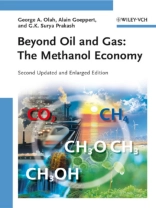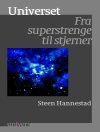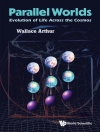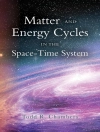The world is currently consuming about 85 million barrels of oil a day, and about two-thirds as much natural gas equivalent, both derived from non-renewable natural sources. In the foreseeable future, our energy needs will come from any available alternate source. Methanol is one such viable alternative, and also offers a convenient solution for efficient energy storage on a large scale.
In this updated and enlarged edition, renowned chemists discuss in a clear and readily accessible manner the pros and cons of humankind?s current main energy sources, while providing new ways to overcome obstacles.
Following an introduction, the authors look at the interrelationship of fuels and energy, and at the extent of our non-renewable fossil fuels. They also discuss the hydrogen economy and its significant shortcomings. The main focus is on the conversion of CO2 from industrial as well as natural sources into liquid methanol and related DME, a diesel fuel substitute that can replace LNG and LPG. The book is rounded off with an optimistic look at future possibilities.
A forward-looking and inspiring work that vividly illustrates potential solutions to our energy and environmental problems.
Tabela de Conteúdo
INTRODUCTION
HISTORY OF COAL IN THE INDUSTRIAL REVOLUTION AND BEYOND
HISTORY OF PETROLEUM OIL AND NATURAL GAS
Oil Extraction and Exploration
Natural Gas
FOSSIL FUEL RESOURCES AND THEIR USE
Coal
Petroleum Oil
Unconventional Oil Sources
Natural Gas
Coalbed Methane
Tight Sands and Shales
Methane Hydrates
Outlook
DIMINISHING OIL AND NATURAL GAS RESERVES
THE CONTINUING NEED FOR CARBON FUELS, HYDROCARBONS AND THEIR PRODUCTS
Fractional Distillation
Thermal Cracking
FOSSIL FUELS AND CLIMATE CHANGE
Effects of Fossil Fuels on Climate Change
Mitigation
RENEWABLE ENERGY SOURCES AND ATOMIC ENERGY
Introduction
Hydropower
Geothermal Energy
Wind Energy
Solar Energy: Photovoltaic and Thermal
Bioenergy
Ocean Energy: Tidal, Wave and Thermal Power
Nuclear Energy
Future Outlook
THE HYDROGEN ECONOMY AND ITS LIMITATIONS
Hydrogen and its Properties
Development of Hydrogen Energy
Production and Uses of Hydrogen
The Challenge of Hydrogen Storage
Centralized or Decentralized Distribution of Hydrogen?
Hydrogen Safety
Hydrogen as a Transportation Fuel
Fuel Cells
Outlook
THE ‘METHANOL ECONOMY’: GENERAL ASPECTS
METHANOL AND DIMETHYL ETHER AS FUELS AND ENERGY CARRIERS
Background and Properties
Chemical Uses of Methanol
Methanol as a Transportation Fuel
Dimethyl Ether as a Transportation Fuel
DME Fuel for Electricity Generation and as a Household Gas
Biodiesel Fuel
Advanced Methanol-Powered Vehicles
Hydrogen for Fuel Cells Based on Methanol Reforming
Direct Methanol Fuel Cell (DMFC)
Fuel Cells Based on Other Methanol Derived Fuels and Biofuel Cells
Regenerative Fuel Cell
Methanol and DME as Marine Fuels
Methanol and DME for Static Power and Heat Generation
Methanol and DME Storage and Distribution
Price of Methanol and DME
Safety of Methanol and DME
Emissions from Methanol- and DME-Powered Vehicles
Environmental Effects of Methanol and DME
Beneficial Effect of Chemical CO2 Recycling to Methanol on Climate Change
PRODUCTION OF METHANOL: FROM FOSSIL FUELS AND BIO-SOURCES TO CHEMICAL CARBON DIOXIDE RECYCLING
Methanol from Fossil Fuels
Methanol through Methyl Formate
Methanol from Methane without Producing Syn-Gas
Methanol from Biomass, Including Cellulosic Sources
Chemical Recycling of Carbon Dioxide to Methanol
METHANOL-BASED CHEMICALS, SYNTHETIC HYDROCARBONS AND MATERIALS
Methanol-Based Chemical Products and Materials
Methyl tert-butyl Ether and DME
Methanol Conversion into Light Olefins and Synthetic Hydrocarbons
Methanol to Olefin (MTO) Processes
Methanol to Gasoline (MTG) Processes
Methanol-Based Proteins
Outlook
CONCLUSIONS AND OUTLOOK
Where We Stand Now
The ‘Methanol Economy’, a Solution for the Future
Sobre o autor
Born in 1927 in Budapest, Hungary, George A. Olah obtained his doctorate at the Technical University of Budapest, and is now a Distinguished Professor and Director of the Loker Hydrocarbon Institute at the University of Southern California. He has received numerous awards and recognitions worldwide, including memberships in various academies of science and 12 honorary degrees. He has some 1, 400 scientific papers, 20 books and more than 140 patents to his name. In 1994, Prof Olah was awarded the Nobel Prize in Chemistry for his discoveries.
Alain Goeppert was born in 1974 in Strasbourg, France. After obtaining his diploma in chemistry from the University Robert Schuman in Strasbourg, he received his engineering degree from the Fachhochschule Aalen, Germany. He then returned to Strasbourg to study the reactivity of alkanes in strong acid systems under the direction of Prof Jean Sommer at the Université Louis Pasteur, earning his Ph D in 2002. He then joined the groups of Professors George A. Olah and G. K. Surya Prakash at the Loker Hydrocarbon Research Institute as a research associate. Dr. Goeppert’s current research is focused on the transformation of methane and CO2 into more valuable products and CO2 capture technologies.
Currently a Professor and Olah Nobel Laureate Chair in Hydrocarbon Chemistry and Scientific Co-Director at the Loker Hydrocarbon Research Institute at USC, G. K. Surya Prakash was born in 1953 in Bangalore, India. After gaining his bachelor and master degrees from India he obtained his Ph D from the University of Southern California under the direction of Prof Olah in 1978. Professor Prakash has close to 600 scientific papers, 9 books and 25 patents to his name, and has received many accolades, including two American Chemical Society National Awards. His primary research interests are in superacid, hydrocarbon, synthetic organic & organofluorine chemistry, energy and catalysis areas.












